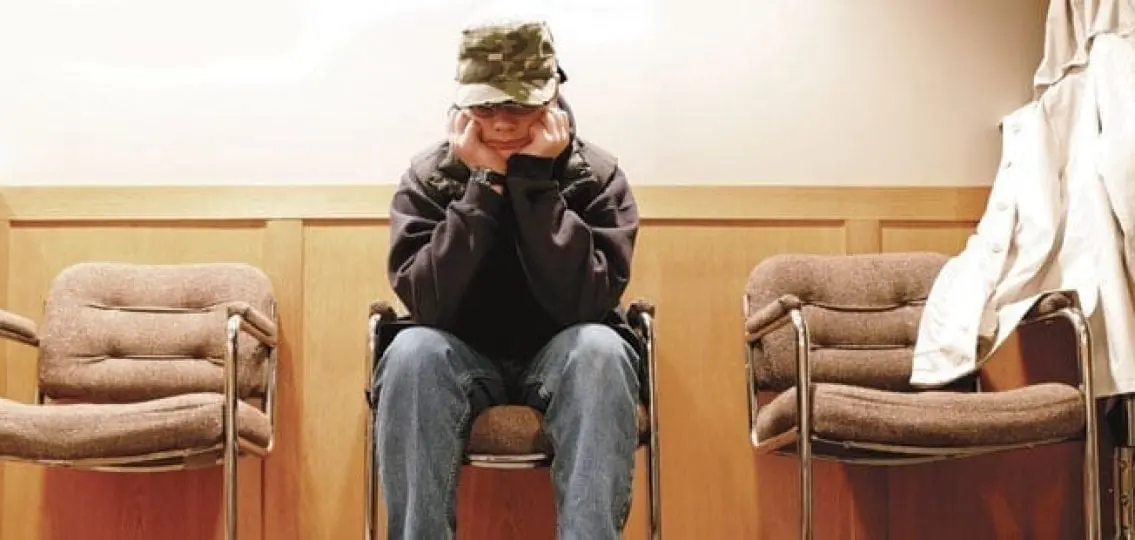Did you know that depression in adolescence looks and feels different than depression in adulthood? It is important for parents to know these differences in teen mental health for early detection and treatment.

Let’s take a look at some of the key differences in the symptom profile for depression in adolescence and adults.
9 Signs and Symptoms of Teen Depression:
1. Irritability and anger
While adults experience a depressed or sad mood, teenagers may become irritable or angry. This is often the most noticeable symptom of depression in adolescence. For example, they may begin having frequent angry outbursts or develop chronic irritable mood.
But how do you know if this is depression or teenage angst? If you’re wondering, Is my teen depressed? … ask yourself these three questions. A “yes” to all three may be indicative of depression.
- Is it an abrupt change in mood?
- Does it happen with everyone–parents, teachers, and peers?
- Is it impacting daily functioning both at school and at home?
2. Spending more time with friends
Depressed adults often withdraw from social activities and show little interest in interpersonal relationships. Depressed teenagers, however, may actually spend more time with their friends while avoiding parents and other adults. This is based on the idea that their friends are the “only people who understand”. Of course, it is normal for all teens to want to spend lots of time with their friends. However, this may be an area of concern if this is happening along with a change in mood and withdrawal at home.
3. Academic difficulties
Adolescence may also exhibit a decline in academic motivation, resulting in poor grades. This is especially concerning if your teenager was otherwise a strong student, and may be indicative of depressed mood.
4. Feelings of worthlessness and self-criticism
Teenagers who are feeling depressed experience an increase in self-blaming and self-criticizing thoughts. For example, they may suddenly become very critical of their abilities or extremely sensitive to feedback from others.
5. Sleep disturbances
Depressed adults often suffer from either hypersomnia or insomnia. But an irregular sleep patterns in teenagers does not necessarily indicate depression. So how do you know if it is truly a sleep disturbance that might be of concern? Three important questions to consider here if you’re wondering, Is my teen depressed?:
- Is your teenager having significant difficulty either falling asleep or staying asleep at night, for at least 1 month? This may suggest insomnia.
- Is your teenager sleeping for prolonged periods (significantly longer than 9 hours) and still tired during waking hours, for at least one month? This may suggest hypersomnia.
- Is your teenager choosing to stay up late to do homework or talk to friends? This…is normal, and why so many teens are just sleep-deprived.
Insomnia and/or hypersomnia in a teenager, combined with other symptoms of depression, are a red flag parents should pay attention to.
6. Physical complaints
Physical complaints associated with depression are more common among depressed teenagers than depressed adults. For example, depressed teenagers are more likely to develop unexplained headaches, stomachaches, or muscle pain. Ask your physician. If there still isn’t an explanation after a medical exam, these symptoms may be due to depression.
7. Risky behaviors
Depression in adolescence can lead to experimenting with risky behaviors such as drug/alcohol use, skipping school, or legal trouble. Again, many teenagers will try new and often risky behaviors, but this is especially concerning if it is an abrupt change that exceeds “typical” adolescent experimentation.
8. Self-harm
Depressed teenagers may begin to engage in self-harm behaviors (cutting, scratching, burning). Warning signs for self-harm include: having unexplained injuries or wearing long-sleeved shirts and pants even in warm weather.
9. Suicidal thoughts
Suicidal thoughts are a serious symptom of depression among teens. Warning signs include: talking about death more often, making statements such as “I’d be better off dead”, “No one would miss me if I was gone”, “I want this all to end”, glorifying death, writing stories or poems about death and dying, giving away prized possessions, saying goodbye to friends and family.

Keep in mind, if your teenager is showing one symptom, it does not necessarily mean that they are depressed. In order to meet clinical criteria for depression, there must be five or more of the above symptoms for a period of two weeks, which significantly impacts everyday functioning. The important exception to this diagnostic rule is self-harm and suicidal thoughts; these symptoms should be taken very seriously and warrant immediate attention from a mental health professional.




